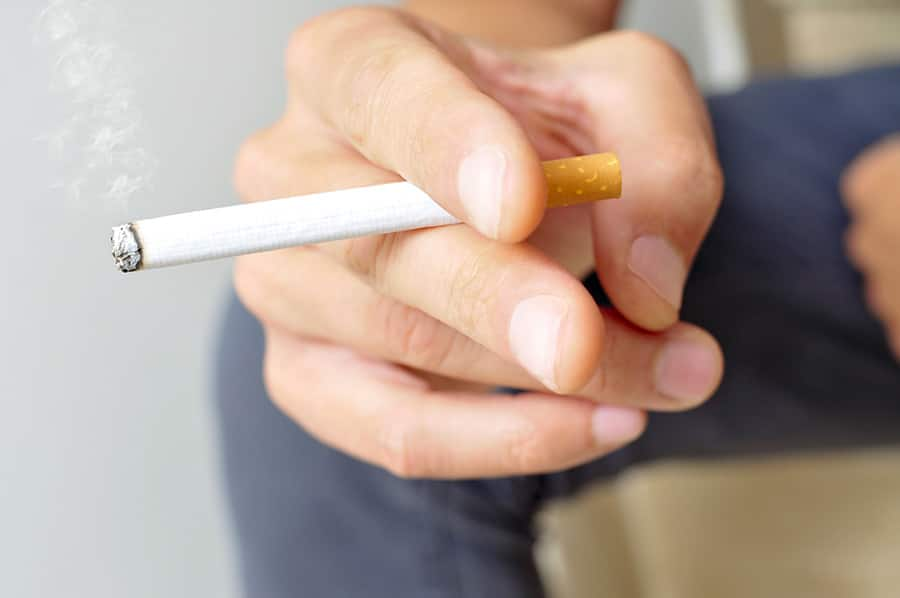For people between the ages of 17 and 25, "wisdom teeth," a common term used to refer to third molars in the back of the mouth, often grow in impacted or at an angle and cause several other issues that could make it necessary for their extraction. The American Association of Oral and Maxillofacial Surgeon (AAOMS) recommends patients have their wisdom teeth out if there is an active infection present in the form of gum disease, irreparable tooth decay, or the emergence of cysts or tumors around the tooth. Also, if an impacted wisdom tooth damages the neighboring teeth, it's best to extract it to prevent further harm.
A dental X-ray will determine if wisdom teeth removal is appropriate. It will also establish the number of wisdom teeth needing removal.
Immediately After Removal
Once your wisdom teeth have been removed and you've been sent home from the dentist's or oral surgeon's office, you'll have a bit of recovering to do. Patients generally leave with wet gauze pressed against the area where the teeth were, with the intent of stimulating a clot to slow the natural bleeding that occurs. This clot will morph into the healing tissue, filling the hole in your gum and bone.
To avoid a dry socket, which Mayo Clinic warns can prolong healing and be quite uncomfortable, care must be taken not to disrupt the clot itself. For this reason, you'll be advised to avoid sucking motions (like drinking through a straw) and smoking, as these actions can indeed hinder the healing clot.
What to Avoid
Since one or more anesthetic agents will be used during the extraction, your mouth will feel numb for some time after surgery. Once you've returned home and are resting, it's important to be mindful of the types of foods and drinks you consume to prevent any damage or sensations of pain when you do regain feeling in your mouth.
To avoid burning your mouth while it's still numb, steer clear of hot foods and drinks. Be mindful that it's easy to bite your tongue, cheek, or lips during this recovery period, so it's best to keep away from chewy foods and hard, crunchy foods such as chips and hard pretzels – along with small sharp foods like popcorn with hulls to avoid gum irritation. As you'd expect, spicy foods should also be avoided, as these could lead to further gum sensitivity or stomach upset.
What to Eat
Nutrition is a key component of the reparative process following dental surgery. Like your dentist would recommend at a routine check-up that a well-rounded diet is imperative to your oral health, the same goes for a post-surgery diet. Along with drinking plenty of water, you'll want to eat the best foods for wisdom teeth removal that will be both nutritious and comforting to your mouth. The following foods will provide important vitamins and nutrients for recovery and are easy to chew and swallow:
- Yogurt
- Cottage cheese
- Apple sauce
- Avocados
- Fruit smoothies (with seedless fruit)
- Scrambled eggs
- Soft fish
- Finely cut meats
- Mashed potatoes
- Oatmeal
- Thin soups
It's best to stick to these items for four to seven days following your oral surgery, as noted in Medical News Today, plan by stocking up with these foods before your surgery and avoid a diet consisting of store-bought items that are processed or contain added sugars.
Keep It Clean
Gentle cleansing and rinsing as directed by your dental professional will be an important aspect of your healing process. Choose a flexible toothbrush with ultra-forgiving, super-thin bristles to clean between your teeth and under the gumline without harming the stitched areas or healing tissue.
As a person continues to grow in their late teens and early twenties, the extraction of wisdom teeth can prove necessary to one's dental health. And while wisdom teeth removal is important, it's imperative to know the foods to eat post-surgery (and what to stay away from) for a quick recovery. Before surgery, you can familiarize yourself with more tips for recovery and gain a deeper understanding of what to expect before the procedure.
Oral Care Center articles are reviewed by an oral health medical professional. This information is for educational purposes only. This content is not intended to be a substitute for professional medical advice, diagnosis or treatment. Always seek the advice of your dentist, physician or other qualified healthcare provider.
ORAL HEALTH QUIZ
What's behind your smile?
Take our Oral Health assessment to get the most from your oral care routine
ORAL HEALTH QUIZ
What's behind your smile?
Take our Oral Health assessment to get the most from your oral care routine















